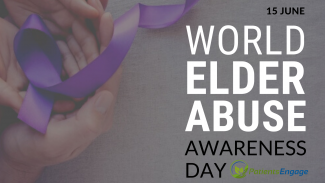
June 15 is World Elder Abuse Awareness Day. Today we talk about some of the common misconceptions on what constitutes abuse.
According to the UN, elder abuse can be defined as “a single, or repeated act, or lack of appropriate action, occurring within any relationship where there is an expectation of trust which causes harm or distress to an older person”. It is a global social issue which affects the Health and Human Rights of millions of older persons around the world including India.
Myths and Facts on Elder Abuse
“No bruises, no abuse”
Fact: Abuse can be invisible, and signs are easy to overlook: a twisted arm, shouting or being neglected food.
“It only happens in nursing homes”
Most abuse occurs at home, by a trusted person. 90% of the abusers are family members(3). In India, 61% of abusers are the son, or daughter in-law(4).
“Stress from caregiving causes elder abuse”
Caregiver stress is real, but it does not cause the abuse. Blaming elder abuse on stress shifts the responsibility away from the abuser and onto the victim.(1)
Caregiving can be one of the most taxing, frustrating and difficult duties one can do. There are instances when a caregiver can feel overwhelmed. So it is important that caregivers seek help for themselves and not reach their breaking points.
“The victim will report it”
Many are scared because the abuser is a family member or caregiver – they fear shame, retaliation, or abandonment if they blow the whistle. (1, 3)
“That doesn’t happen anymore”
Elder abuse is a hidden problem. 1 in 4 elders in India have experienced abuse in the past year alone (1), yet only 2% reported it (3)
“It’s not my family, so there is nothing I can do”
Everyone has a role in protecting the elderly (4).
Public can reach out to an elderly family member to check-in
Caregivers can take breaks by getting help from family/friends/local health and social services (if available)
Elderly can learn about their rights, and make sure their financial and legal affairs are in order
For more information, call:
India – HelpAge India (1800-180-1253) (7)
Singapore – ComCare (1800-222-0000) (5)
Sources
- Helpage Report India Elderly Abuse 2018 - https://www.helpageindia.org/wp-content/uploads/2018/06/ELDER-ABUSE-IN-…
- WHO India Case Study - https://www.who.int/ageing/projects/elder_abuse/alc_ea_ind.pdf?ua=1
- WHO Factsheet - https://www.who.int/news-room/fact-sheets/detail/elder-abuse
- WHO Infographic - https://www.who.int/violence_injury_prevention/violence/elder_abuse/Eld…
- Times of India - https://timesofindia.indiatimes.com/india/Elderly-abuse-The-ugly-truth/…
- MSF Booklet - https://www.msf.gov.sg/publications/Pages/Stop-Family-Violence-Elder-Ab…
- https://www.helpageindia.org/our-work/welfare-development/elder-helplin…
General Sources and Readings
- https://www.ncbi.nlm.nih.gov/pmc/articles/PMC7234937/
- https://theconversation.com/coronavirus-lockdown-measures-may-be-puttin…
- https://www.straitstimes.com/singapore/courts-crime/coronavirus-more-ca…
- https://www.channelnewsasia.com/news/cnainsider/secret-violence-the-sil…
- https://www.un.org/en/observances/elder-abuse-awareness-day/
- https://ncea.acl.gov/Resources/COVID-19.aspx
- https://onlinelibrary.wiley.com/doi/10.1111/jgs.16496
- https://www.helpageindia.org/aboutus/research/





